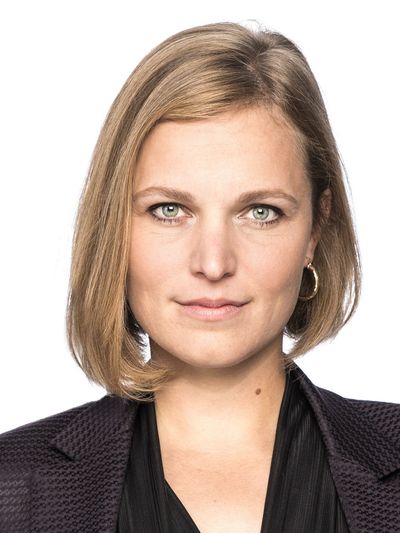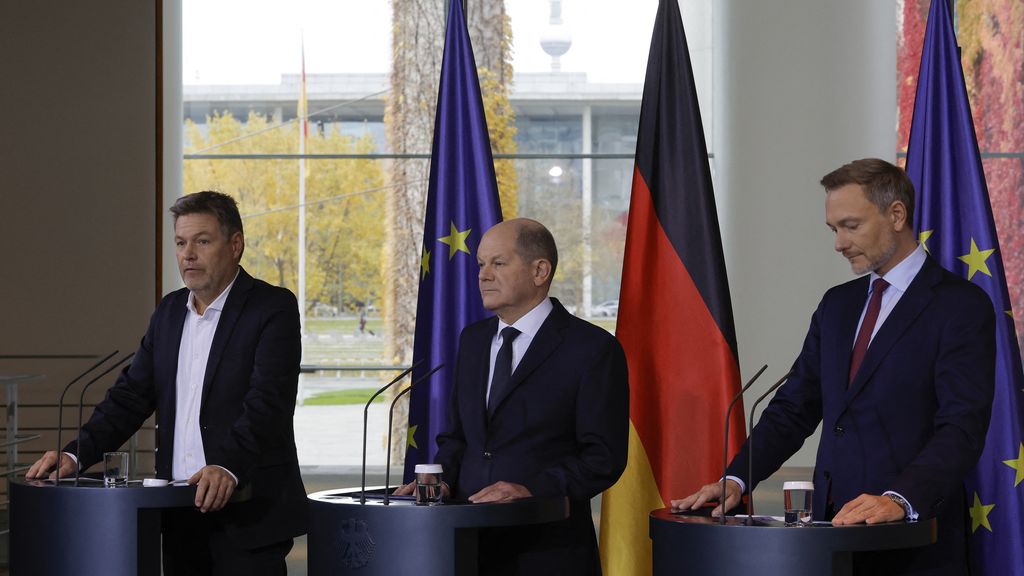Noos News•
-

Charlotte Weigers
Germany correspondent
-

Charlotte Weigers
Germany correspondent
Slow-motion accumulation, this is what the German government looks like now. It appears that a technical problem in the budget has plunged the government into a deep crisis. Suddenly we lost 60 billion euros, and perhaps much more.
Last week, the Constitutional Court ruled that the government may not spend a large sum of money as planned. Since then, finance ministers, both national and state, have been forced to block increasingly larger portions of the budget, and many important projects are at risk.
The three government parties – the Social Democrats, the Greens and the Free Democratic Party – which each have very different interests and were already at odds with each other over this, must now work out a common solution on how to bridge this huge gap. This seems to be an almost impossible task.
Ambitious plans
The problem arose two years ago. There appears to be 60 billion euros remaining in the emergency fund to combat the repercussions of Corona. Chancellor Olaf Scholz was still Finance Minister at the time, but he had already won the election. During negotiations to form the new coalition, his ministry came up with the idea of diverting that money to another vessel: climate policy.
This seemed smart: Germany had a lot of catching up to do to achieve its climate goals. The new government came up with ambitious climate plans (important for the Greens), without having to borrow a lot of extra money, raise taxes (important for the FDP), or cut social security (important for Schulz’s SPD). .
Not according to the rules
But the opposition, the Christian Democratic Union, which had just suffered a historic defeat, did not like that. He moved towards her Federal Criminal CourtConstitutional Court in Karlsruhe.
According to the Confederation, which is the collective name for the Christian Democratic Union (CDU) along with the Bavarian Christian Social Union, the government is avoiding Germany’s “debt brake”: a law introduced by the country after the financial crisis, which more or less states that it may not borrow more than it… He receives it. Germany could only borrow money for the Corona Emergency Fund because it provided an emergency debt relief exemption due to the pandemic. By switching, the government is circumventing the rules for this emergency exception, according to the union.
In an emergency ruling, the court ruled last year that the government could continue to spend coronavirus money, for example to reduce electricity prices that have risen dramatically since the war in Ukraine. The ban would be too harsh, especially if the final arbitrator later finds it unnecessary.
Last week, after a longer study, the court set a line of €60 billion. And perhaps through many money pots being filled in a similar way. Like the €200 billion economic stabilization fund that Schulz proudly announced last year. The Union of Opposition Factions has already unleashed its lawyers in this regard.
No chip factories after all?
This will quickly have serious consequences. For example, the government billions that attracted chipmakers to Germany this year are now uncertain. Just as measures to mitigate high energy costs, both for energy-intensive industries and for citizens.
It seems that anyone who has already ordered an electric car, but has not been able to register it yet, is missing out on the promised support. A much-needed revamp of Germany’s rail network is also at risk.
Faltering government
While lawyers are now questioning the extent of the consequences of this ruling, government parties are struggling to find a solution. They have very different ideas for it.
The Green Party and the Social Democratic Party favor amending the debt suppression law and borrowing more. But this requires a two-thirds majority, and this does not seem possible. In addition to the ruling Free Democratic Party, the federal opposition faction is also opposed. The FDP is also not keen on raising more money by raising taxes.
Another option: make deep cuts, for example in climate plans and social security. Acceptable for the Free Democratic Party, but not for the Greens and the Social Democratic Party. Or the government will declare a state of emergency again to temporarily bypass the debt brake. But the Constitutional Court may not agree to this, although it will take some time before a ruling is issued.
Rumors that the already struggling government may not be able to survive this crisis are becoming increasingly louder. There are concerns about the small Free Democratic Party, which performed very poorly in the polls and lost heavily in state elections.
If elections were held now, the Union would win by a large margin, according to opinion polls. A partner with whom the FDP can get along. But the far-right Alternative for Germany (AfD) is also on track for great success as a second party. An image of fear that may push the current government to return to its cohesion.







